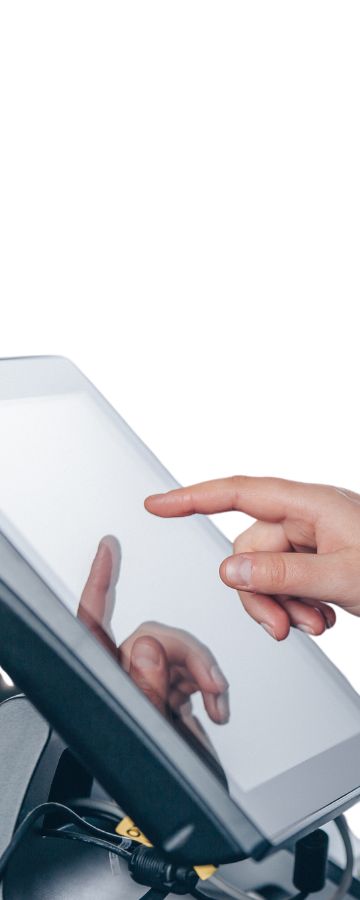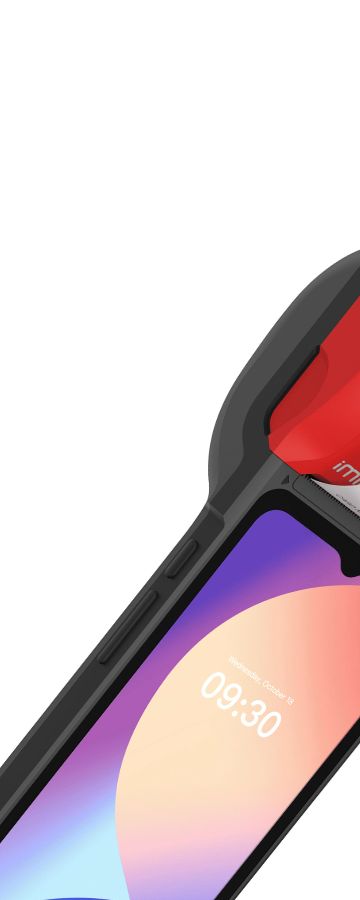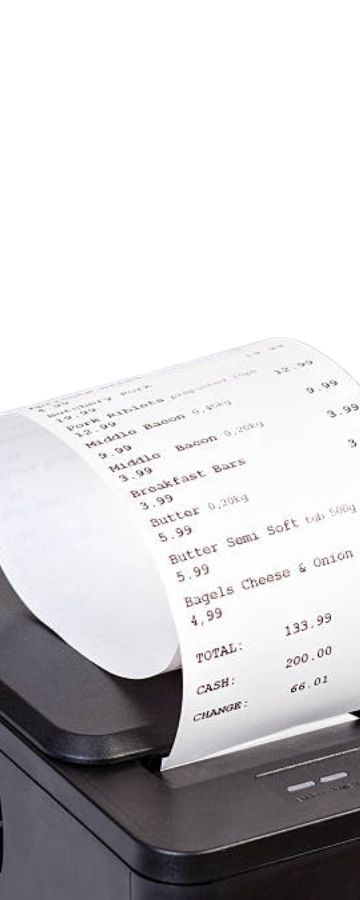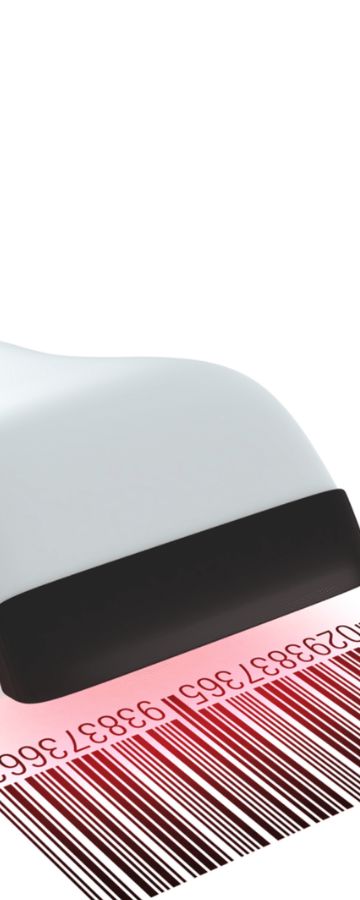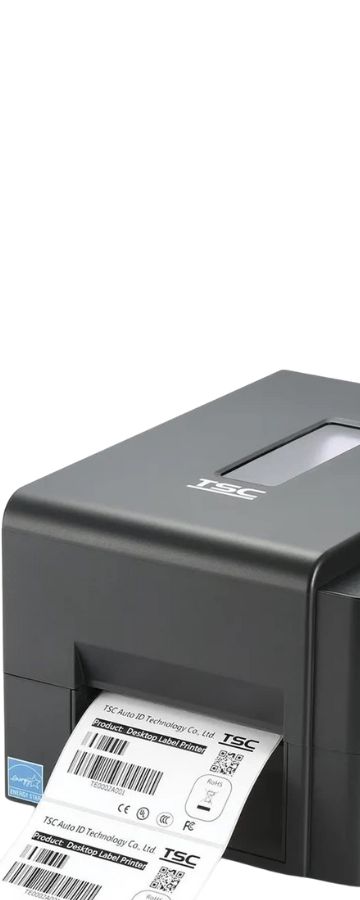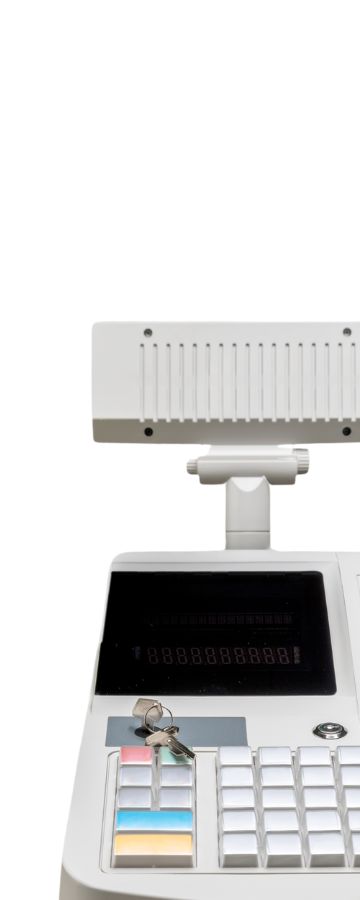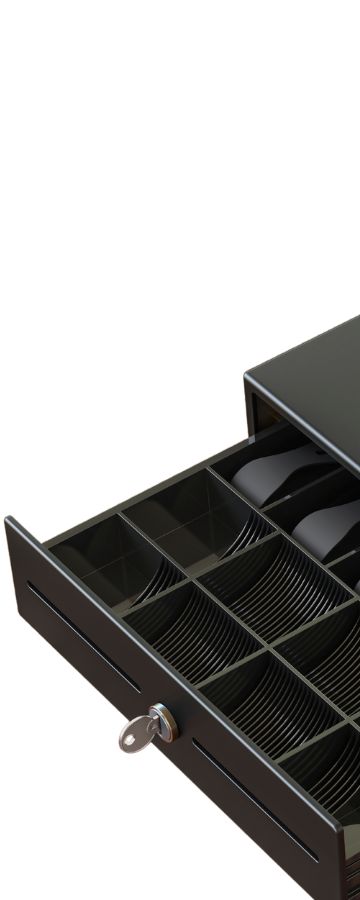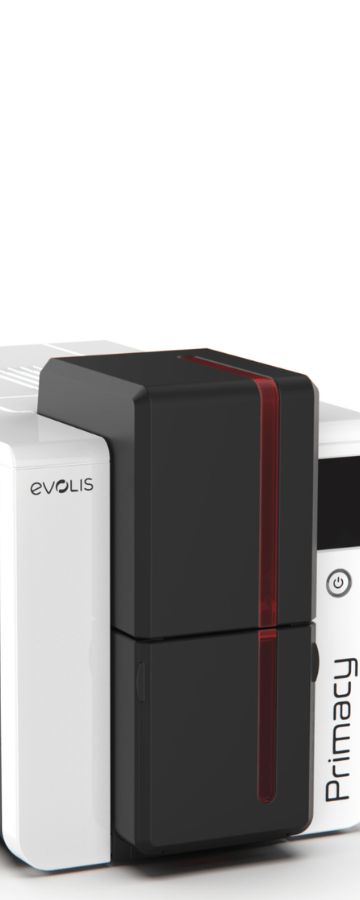Call Us 95012-25500
Call Us 8804408880
₹0
- Windows Touch POS Terminals
Posiflex PS-3616Q Windows Touch POS Terminal
₹51,493₹43,774POSBANK Apexa TL-2150 Windows Touch POS Terminal
₹79,800₹75,520Posiflex XT-6015 Windows Touch POS Terminal
₹95,934₹89,208POSBANK Apexa G Windows Touch POS Terminal
₹48,330₹44,250
- Android Touch POS Terminals
Posiflex Rugtek RTP 3 Desktop Android Touch POS Terminal
₹42,369₹36,800Udyama UDY-Z91 Mobile Android POS Terminal
₹18,000Original price was: ₹18,000.₹14,300Current price is: ₹14,300.
- Kiosks
- Thermal Printers
Posiflex Rugtek RP-326 Thermal Printer
₹10,537Original price was: ₹10,537.₹8,800Current price is: ₹8,800.Posiflex AURA PP-8802 Thermal Printer
₹16,500Original price was: ₹16,500.₹13,000Current price is: ₹13,000.Posiflex AURA PP-8803 Thermal Printer
₹16,999Original price was: ₹16,999.₹13,699Current price is: ₹13,699.
- Barcode Scanners
Posiflex Rugtek CD-3200 BT RC 2D Barcode Scanner
₹12,400Original price was: ₹12,400.₹9,400Current price is: ₹9,400.TVS BS-L100 PLUS 1D Barcode Scanner
₹3,799Original price was: ₹3,799.₹1,985Current price is: ₹1,985.TVS BS-C103G 1D Barcode Scanner
₹4,495Original price was: ₹4,495.₹2,295Current price is: ₹2,295.Honeywell ECLIPSE MK5145 1D Barcode Scanner
₹6,500Original price was: ₹6,500.₹2,940Current price is: ₹2,940.
- Barcode Label Printers
TSC TE244 Barcode Label Printer
₹18,499Original price was: ₹18,499.₹11,899Current price is: ₹11,899.TSC TTP-244 PRO Barcode Label Printer
₹19,699Original price was: ₹19,699.₹12,800Current price is: ₹12,800.TSC DA310 Barcode Label Printer
₹24,270Original price was: ₹24,270.₹19,800Current price is: ₹19,800.TSC TTP-345 Barcode Label Printer
₹30,600Original price was: ₹30,600.₹27,800Current price is: ₹27,800.
- Billing Machines
- POS Peripherals
- Software
- PVC Card Printers
- Consumables POS Printing
- Consumables Paper Label Printing
- Commercial Displays & LFD
- Windows Touch POS Terminals
- Android Touch POS Terminals
- Kiosks
- Thermal Printers
- Barcode Scanners
- Barcode Label Printers
- Billing Machines
- PVC Card Printers
- Consumables POS Printing
- Consumables Paper Label Printing
- Software
- Commercial Displays & LFD
- POS Peripherals
The best discounts this week
Every week you can find the best discounts here.
ZestPOS Mobi (1008) Mobile POS Combo For Restaurants
YMCKO Ribbon (Primacy 1) For PVC Card Printing
Honeywell ORBIT HF680 2D Barcode Scanner
Posiflex Rugtek RP-76 V Thermal Printer
ZestPOS Go – Restaurant Management Software (3 Months Subscription)
Evolis Primacy 2 PVC Card Printer
A good POS (Point of Sale) system is crucial for smooth operations. It helps you process transactions, manage inventory, and keep track of sales efficiently. With so many options out there, deciding between a Windows-based or an Android-based online POS system can be overwhelming. Let’s break down the differences to help you find the perfect fit for your business.
What’s a POS System?
A POS system is a combination of hardware and software designed to help you manage your sales and business operations. The operating system it runs on—Windows or Android—can greatly affect its performance, features, and usability. Let’s explore what each platform has to offer.
Windows POS Systems
Reliable Performance: Windows-based POS systems are known for their dependability. They benefit from the extensive development and testing by Microsoft, which ensures they can handle heavy workloads reliably. This makes them a solid choice for larger businesses with demanding needs.
Feature-Rich Software: If you need advanced features like detailed reporting and complex inventory management, Windows POS systems might be your best bet. They often come with a wide array of functionalities tailored for more intricate business operations.
Broad Hardware Compatibility: Windows POS systems typically support a wider range of hardware, including printers, scanners, and cash drawers. This is especially useful if you’re using specific equipment or have existing hardware you want to continue using.
Higher Costs: One thing to keep in mind is that Windows POS systems can come with a higher price tag. Licensing fees for the software and the operating system can add up, and there might be additional maintenance costs.
Android POS Systems
Affordable and Flexible: Android POS systems are often more budget-friendly. The open-source nature of Android means lower licensing fees and more affordable software options, making it an attractive choice for small to medium-sized businesses.
User-Friendly Interface: Android POS systems are known for their intuitive and easy-to-navigate interface. This can make training your staff quicker and simpler, and the touch-screen functionality adds to the ease of use.
Mobile and Cloud Integration: Android systems excel in mobile and cloud integration. If you need to process transactions on the go or use tablets as part of your POS setup, Android systems are well-suited for that. Cloud-based solutions also offer flexibility for data management and storage.
App Ecosystem: Android’s app ecosystem is vast. You can find a wide range of apps on the Google Play Store that can enhance your POS system with additional features like loyalty programs and marketing tools.
Choosing a POS System for Your Business

When deciding between Windows and Android POS systems, consider these key factors:
Business Size and Needs: Larger businesses with more complex needs might benefit from the extensive features and stability of Windows POS systems. Smaller businesses or those looking for a more budget-friendly option might find Android systems more suitable.
Budget: Think about your budget for both the initial investment and ongoing costs. While Windows systems might have a higher upfront cost, Android systems generally offer a more affordable option.
Hardware Compatibility: Check if the POS system you’re considering is compatible with your existing hardware. Windows POS systems usually support a wider range of peripherals, but Android systems might require specific hardware.
Future Growth: Consider your business’s growth plans. Android POS systems offer flexibility and cloud-based solutions that can scale with your business.
In Conclusion, selecting the right POS system comes down to understanding your business’s unique needs and preferences. Whether you opt for the robust and feature-rich capabilities of a Windows POS system or the cost-effective, user-friendly nature of an Android POS system, each has its advantages. By carefully evaluating your requirements, budget, and growth plans, and utilizing resources like the Ministry of POS for expert insights, you can make an informed decision. Choosing the right POS system will not only streamline your operations but also enhance customer satisfaction and support your business’s success.
FAQS
- What are the main differences between Windows and Android POS systems?
Windows POS systems are known for their extensive features, stability, and broad hardware compatibility, making them suitable for larger businesses with complex needs. Android POS systems are generally more affordable, user-friendly, and integrate well with mobile and cloud-based solutions, making them a good choice for small to medium-sized businesses.
- Which POS system is better for small businesses?
For small businesses, an Android POS system might be more advantageous due to its affordability, ease of use, and flexibility. Android systems offer a cost-effective solution with a user-friendly interface and mobile integration, which can be ideal for businesses with simpler needs and a smaller budget.
- Can I use my existing hardware with a new POS system?
Windows POS systems usually have broader hardware compatibility, so if you have existing peripherals like printers and scanners, they are more likely to be supported. Android POS systems may require specific hardware, so you should check compatibility before making a purchase.
- Can a POS system be customized to fit my business needs?
Yes, many POS systems offer customization options to tailor the software and hardware to your specific business needs. Whether you need specialized features or custom integrations, consult with your POS provider to explore available options for customization.
- How do I know if a POS system will meet my business’s needs?
Before choosing a POS system, assess your business’s current needs and future goals. Consider factors such as transaction volume, inventory management requirements, and customer service needs. Testing different systems through demos or trials can also help determine if a POS system meets your expectations.
Recent Posts
- The Future of Retail Starts with Our POS
- Top Portable Billing Machines for Restaurants: Fast, Efficient, and Reliable
- The Power of Windows Touch POS Terminals for Modern Businesses
- The Rise of Portable Mini Thermal Printers: A Must-Have Gadget in 2025
- Smart Billing Starts Here: Ministry of POS Explained





